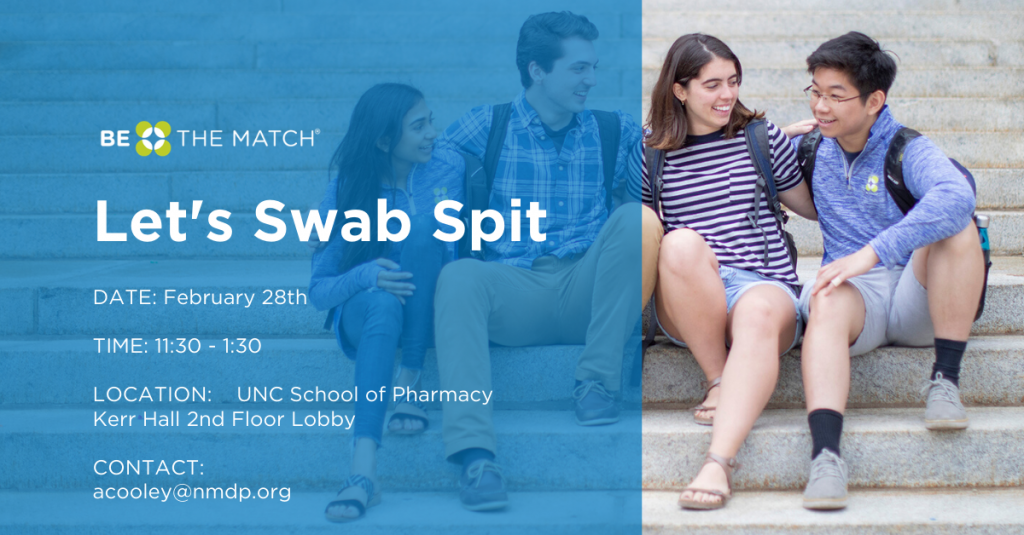
- This event has passed.
Be The Match
February 28, 2020 @ 11:30 am - 1:30 pm
 On Friday February 28th, Be The Match organization will be hosting a Swabbing Drive on 2nd floor Kerr Hall from 11:30am – 1:30pm. Be The Match manages the largest marrow registry which helps connect patients diagnosed with leukemia, lymphoma, and other life threatening blood diseases with life-saving marrow donors- this could be you! All it takes is 7 minutes of your time! Joining the registry only takes filling out a short health questionnaire and a quick cheek swab! Please stop by the table on Friday, February 28th, we would love to see you!
On Friday February 28th, Be The Match organization will be hosting a Swabbing Drive on 2nd floor Kerr Hall from 11:30am – 1:30pm. Be The Match manages the largest marrow registry which helps connect patients diagnosed with leukemia, lymphoma, and other life threatening blood diseases with life-saving marrow donors- this could be you! All it takes is 7 minutes of your time! Joining the registry only takes filling out a short health questionnaire and a quick cheek swab! Please stop by the table on Friday, February 28th, we would love to see you!
Common FAQ’s:
- How likely is that I will match with a patient and go on to donate? About 1 in 430 US Be the Match Registry members will go on to donate bone marrow or peripheral blood stem cells to a patient. But your likelihood depends on tissue type, age, race, etc- all sorts of factors!
- What happens if I do match with a patient? Further questionnaires and blood tests will be conducted to determine if you are the best fit for the patient.
- What kind of donation may I be asked to do? There are two types of donations- bone marrow and peripheral blood stem cell (PBSC) donation. The type of donation depends on the patient’s needs. Bone marrow donation is a surgical procedure done under general or regional anesthesia in a hospital. A needed will be used to withdraw liquid marrow from the back of the pelvic bone. Discomfort and side effects vary. PBSC donation is a non-surgical procedure done in an outpatient clinic. Patients will receive daily injections of filgrastim to increase the number of blood-forming cells in the blood. Then a donor’s blood will drawn through a needle as it filters through a machine and then later returned to the donor.
- Will it hurt? For bone marrow donation, there would be no pain during the collection procedure. Discomfort and side effects vary by person, but donors describe the pain from “achy hip bones/ falling on their buttocks” to “strained muscle in the back”. For the PBSC donation, donors may experience headaches, bone/muscle pain, or cold-like symptoms prior to donation, but they disappear shortly after donation. About 0.6% of donors experience serious side effects from filgrastim.
For more information about Be The Match or the donation process, please visit: https://bethematch.org/
For any other questions, please feel free to reach out to Abigail Danos (abigail_danos@unc.edu), Vany Nguyen (vany_nguyen@unc.edu), or the BTM coordinator Amanda Cooley (acooley@nmdp.org).

